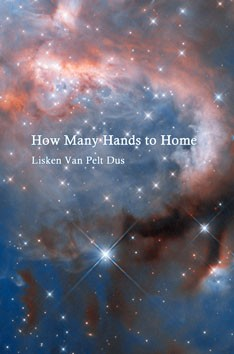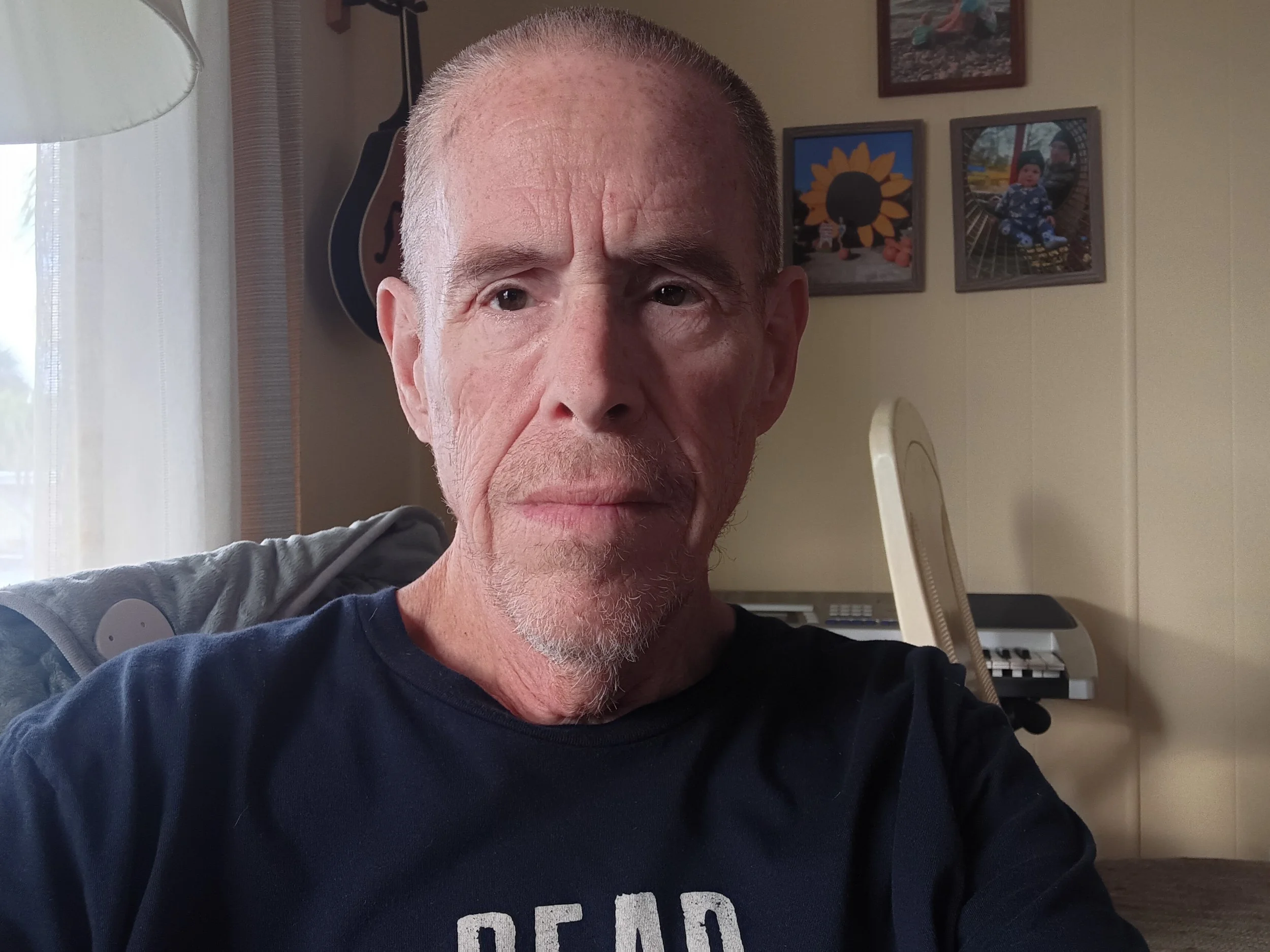Home Is Where the Heart Is
February 19, 2025
Book Review of How Many Hands to Home by Lisken Van Pelt Dus
Reviewed by John M. Bellinger
If there is a single word I would attach to this book it is generosity. From the beautiful Hubble photograph on the cover to the very last piece in the book, “Ode to the Universe," this is generous work, generous with space, with history, and generous with the wisdom of a life both well-lived and closely observed. It is not that the small is invisible to the author; it is that the scope of her thinking leaves the reader with a nearly constant awareness that a larger picture always surrounds the specific. This is what I mean by generosity, that sort of background music that intimates the idea that every event is larger than it seems.
And yet in this generosity, LVPD is, through much of this work, a patiently clinical observer of this life. Her thoughtful prosody tends to be parsed in an almost scientific worldview, but one that “escapes” this clinical bent and breaks out in moments of wild and lovely verse. From the start of this book, the author is the fire that burns at the center. “Tell me,” she writes, “what do you know / of how you began? / What did you burn as you grew?” And this first section of the book takes us through the fires of history, holocaust, and hatred. In the final poem of this section, “Toward the Starting Points,” that burning passes through its own epic history to arrive at “a moment. My tongues mine, not mine, heavy, weightless, liquid / and made of fire.”
Again, the second section is universal in scope, yet filled with intimacies. “Come, we’ll share the heavy lifting / of grasping so much of so little” is the cry the author articulates in “The Universe Considers Loss,” and the lifting here gets heavy, indeed, rife with that kind of clinical history which is evident throughout the collection:
...even your great-grandmother
you never knew, her shape
shrinking to no more than smoke
as the bombs she hid from in the Underground
continued to echo.
This is an emotionally precise history of loss that bleeds into that larger picture that stretches personal pain into the agony of time. The poem "Kwashiorkor,” may be as bleak a piece as can be found here: “...open mouths turned upward like baby birds’ / hunger eating the fathers too yes hunger.” This becomes an elegy of spiritual malnutrition. And again, the release finds an out in “Of War and Seizure,” an almost clinically hallucinogenic, breathless essay on war and fear: “strategic arteries clouded behind the blurring / subdural hematoma and subterranean concussion / I am ashamed to find the maps beautiful.”
This is us.
In the next section, rescue and hope begin to diffuse their way into history's frame. In “Sew Me into Your Country”: “Weave me / into your fabric—/ gather my threads / into the weft of your land”. In “How to Become a Raft”: “Coat yourself in phosphorescence. // Remember, you wanted to be the ocean, / to gleam like that.” And in the poem “Waiting in Line at Immigration”:
When in the end your passport
is stamped and you are welcomed home
without difficulty, you must reclaim
your map, ink coordinates back in.
In what feels like a central piece, the subtle and beautiful “Alejandra,” there seems to be a moment where everything is holding its breath. “This home is not bougainvillea climbing / high walls topped by blue sky impossible,” LVPD writes. “This home is skeleton, is rib and ice-bone. / I beat drums, burn incense, herb every wall. / Still. I'm a stranger, with no home at all.” All this history and pain is what LPVD rails about, in small bursts that reach out from this world's traumatic past. This is a term paper for the future. This is where we are, this is how we get through it.
The penultimate section of the book begins a celebration of coming home. The poem “Ghazal: Home” makes a formal echo with “Home: A Cadralor” (in the following section), the former realizing “England taught me to hear class, America to see it. / Either way, Lisken, unpack. Make yourself home”—and that is the critical point: “Make yourself home,” not “make yourself at home.”
At the end, this book comes around to love. “Today the sun is a victory—victoriously re- / turning to the same place // it was a year ago,” LVPD joyfully sings in “Analemma” (scientific terminology again). Love is the home where the author lands, on love, love as a returning to a familiar place. “Or you dreamed me. // Or it was my fault / and you were hypnotized— / or vice versa. // Or nothing happened at all / and we are still dreaming.”
The book culminates in the final two poems. The first, “Oh, My Beloveds” is written in an alternately rapid-fire and breathless delivery that is as visually striking as it is hypnotic. It rips down the page:
what shall I say to this time
blue time
balancing-on-a-knife-time
when the dead
do not whisper
how is it that I hear them anyway.
And the final piece, “Ode to the Universe,” is a gentle and meditative poem about the universe as a gift, a place that welcomes: “oh, most opalescent / everything, mine / of every known mineral... Because you hold us, hold us, every molecule.” That simple repetition (“hold us, hold us”) is the psalm of every believing heart.
This is LPVD’s universe, eternally welcoming, a home that exists beyond family, beyond almost anything but love and a dream of something that makes it whole. This is a work that you feel has been a long time coming, but still, but still. For LPVD, you know the exploration will never be finished. As long as there is a story to be told.
John M Bellinger is currently the co-managing Editor of The Comstock Review. (38 years in print!) He has published a number of poems and intends to keep doing so.


